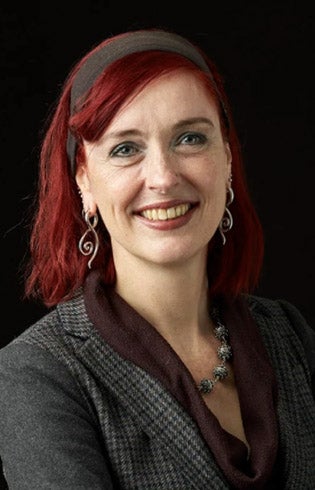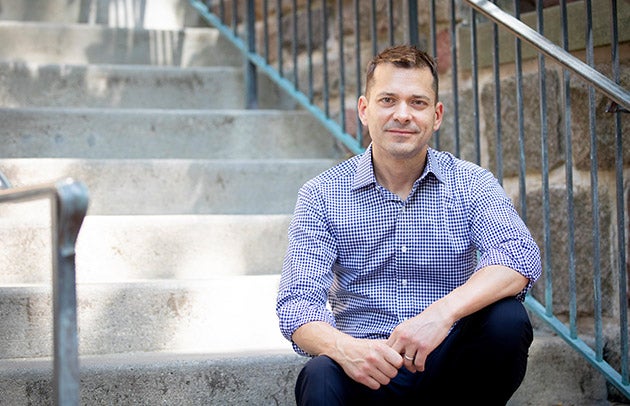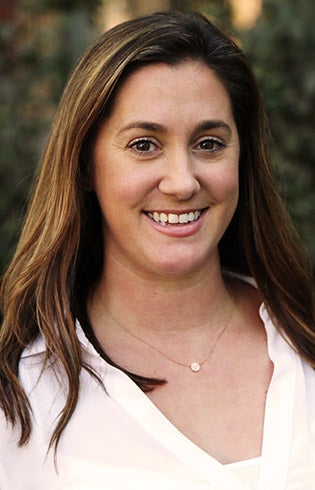
USC Dornsife faculty and students participate at the COP26 climate conference
Representatives from nearly 200 countries are gathering in Glasgow, Scotland, in what is being billed as the “world’s last chance to get runaway climate change under control.” The goal of the 26th “Conference of the Parties,” or COP26, is to avert runaway climate change by reaching agreements to aggressively reduce the emissions of greenhouse gases that are warming the planet and leading to a potentially calamitous future.
USC Dornsife College of Letters, Arts and Sciences is well represented at the conference, with faculty members and students playing roles as diverse as the College’s education, scholarship and research.

Wändi Bruine de Bruin. (Photo: Courtesy of Wändi Bruine de Bruin.)
Wändi Bruine de Bruin is presenting findings from a USC Dornsife Public Exchange–UN Foundation study showing how easily people misunderstand terms commonly used to describe climate change. As one study participant said, “It sounds like you’re talking over people.”
The study is meant to help climate scientists, policymakers and even journalists communicate climate science more clearly so that nonexperts better understand the looming climate crisis and what can be done to prevent it. Bruine de Bruin is the study’s lead author.
The study also informed an article published this week in The Conversation that helps people understand climate change terminology that likely will be used at COP26 and by the media covering the event.
“We need everyday people to be able to understand climate change if we are going to build the kind of consensus the world needs to support meaningful action. To do that, experts need to communicate climate science in everyday language,” said Bruine de Bruin, Provost Professor of Public Policy, Psychology and Behavioral Science with appointments at USC Dornsife and the USC Sol Price School of Public Policy.
The journal Climatic Change published the study in its new Topical Collection, which showcases the latest communications research and practices and their relevance to the Intergovernmental Panel on Climate Change (IPCC). (The terms used for the study were drawn from IPCC documents, although the study was conducted independently.) The IPCC is the world’s leading source for information about the scientific basis for climate change, and its recent findings will help inform decisions made by policymakers who will attend COP26.
Bruine de Bruin will be joined by IPCC Vice Chair Thelma Krug and other speakers. The presentation streams live from 2:30 to 4 p.m. GMT on Nov. 5 and can be accessed remotely through the IPCC’s YouTube channel.

Joe Árvai. (Photo: Marc-Grégor Campredon.)
Joe Árvai travels to COP26 to serve as part of the delegation from the Washington, D.C.-based Global Council for Science and the Environment. The organization works to elevate the role of science in decision-making, a mission that dovetails with Árvai’s research focus on how people assess risk and make decisions related to the environment and sustainability. As a credentialed observer, Árvai, who is director of the USC Wrigley Institute for Environmental Studies, headquartered at USC Dornsife, will provide input to policy makers at daily briefings and assess the latest approaches to protecting our environment.
“This is an important milestone for the Wrigley Institute because on the one hand, it will give international visibility to the insights and science we generate,” said Árvai, who is also Dana and David Dornsife Chair and professor of psychology. “On the other hand, the sessions and exhibitions will provide a great opportunity to bring insights back to inform the institute’s educational programs and research enterprise.”

Shannon Gibson. (Photo: Mike Glier.)
Shannon Gibson and a team of USC Dornsife undergraduate students are attending COP26 virtually, as observers, during a retreat hosted by the USC Wrigley Institute on Santa Catalina Island, just off the coast of Los Angeles.
Gibson, associate professor (teaching) of international relations and environmental studies, and her students are investigating how protests and grassroots activities impact language and communication about climate change at formal conferences like COP26. They’re also researching how the COVID-19 pandemic has presented both challenges and opportunities for organizations fighting for climate justice.